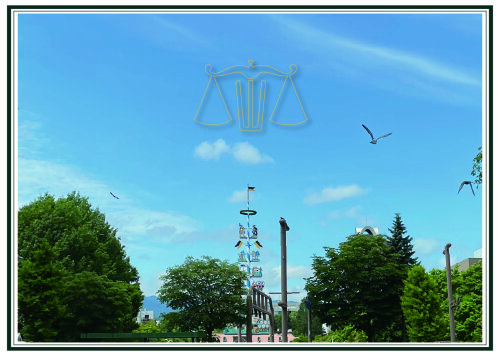Best Wrongful Termination Lawyers in Sapporo
Share your needs with us, get contacted by law firms.
Free. Takes 2 min.
List of the best lawyers in Sapporo, Japan
About Wrongful Termination Law in Sapporo, Japan
Wrongful termination law in Sapporo, Japan, is framed by the country's robust worker protection laws. These laws generally favor employee rights and establish strict protocols for terminating an employment contract. Wrongful termination, or 'kigyou kaiko,' applies to situations where an employee is dismissed without just cause or in violation of local labor laws. The constitutionality of a dismissal in Japan must meet the requirements set forth by the Labor Standards Act, which is enforced nationally, including in Sapporo.
Why You May Need a Lawyer
Legal representation in Sapporo may be necessary if you are facing situations such as being fired without proper notice, dismissal based on discrimination, lack of a genuine reason for termination, or retrenchment that doesn't follow legal procedures. A labor lawyer can help protect your rights, negotiate severance packages, or represent you in court or before labor tribunals. Lawyers are also valuable in interpreting complex employment agreements and relevant local laws, advising you on the strength of your case, and guiding you through the legal process.
Local Laws Overview
The key aspects of local laws relevant to wrongful termination in Sapporo include compliance with the Labor Standards Act, which provides minimum standards for working conditions, including termination procedures. Employers must provide a minimum 30-days' notice or pay in lieu of notice for dismissals. Employers are also required to provide a clear and valid reason for termination. If the dismissal is deemed as an "abuse of right" - that is, without reasonable and socially acceptable grounds - it may be considered invalid under the Civil Code. Additionally, the Workers' Accident Compensation Insurance law covers employees in the case of unjust dismissal, providing some financial compensation during disputes.
Frequently Asked Questions
What constitutes wrongful termination in Sapporo?
Wrongful termination in Sapporo is a dismissal that violates contract terms, is without just cause, discriminates based on nationality, creed, gender, or violates the Labor Standards Act.
Can I challenge a termination that I believe is unjust?
Yes, you have the right to challenge a termination if you believe it breaches your contract or the law. Consulting with a lawyer is advisable to evaluate the merits of your case.
What is the general process for disputing a wrongful termination?
The general process involves filing a claim with the Labor Standards Inspection Office or pursuing legal action through the courts, often beginning with conciliation.
How long do I have to file a claim for wrongful termination?
You typically have two years from the date of dismissal to file a civil lawsuit, but shorter terms may apply to specific labor tribunal claims.
Is it mandatory to have a lawyer for a wrongful termination case?
While not mandatory, having a lawyer is highly recommended due to the complexities of labor law in Japan and the importance of expert guidance in legal procedures.
Can I claim severance pay if wrongfully terminated?
Potentially, yes. If wrongful termination is proven, you may be entitled to severance pay or compensation for the wrongful act.
What types of damages can I recover?
Damages can include lost wages, benefits, and sometimes compensation for emotional distress, depending on the case specifics.
What evidence do I need to support my wrongful termination claim?
Evidence can include employment contracts, company policies, communication records, witness testimonies, and any other document related to your dismissal.
How does discrimination impact wrongful termination claims in Sapporo?
Dismissals based on discriminatory grounds are illegal under Japanese law, and evidence of discrimination can significantly strengthen a wrongful termination claim.
Are foreign workers protected under the same laws as Japanese nationals?
Yes, foreign workers in Japan are entitled to the same protections as Japanese nationals when it comes to wrongful termination and other labor rights.
Additional Resources
Additional resources include the Labor Standards Inspection Office of Sapporo, the Japan Legal Support Center (Houterasu), and labor unions specific to your industry. These organizations can offer guidance and support in wrongful termination cases, as well as informational resources on workers' rights and legal services.
Next Steps
If you believe you have been wrongfully terminated, the first step is to gather all relevant documentation related to your employment and dismissal. Next, reach out to a labor attorney who can provide advice specific to your situation. If you cannot afford an attorney, contact the Japan Legal Support Center for potential assistance or representation. Additionally, file a claim with the local Labor Standards Inspection Office, which can mediate disputes and, in some cases, provide resolution without going to court. Be mindful of the time-sensitive nature of these claims and act promptly to ensure your rights are protected.
Lawzana helps you find the best lawyers and law firms in Sapporo through a curated and pre-screened list of qualified legal professionals. Our platform offers rankings and detailed profiles of attorneys and law firms, allowing you to compare based on practice areas, including Wrongful Termination, experience, and client feedback.
Each profile includes a description of the firm's areas of practice, client reviews, team members and partners, year of establishment, spoken languages, office locations, contact information, social media presence, and any published articles or resources. Most firms on our platform speak English and are experienced in both local and international legal matters.
Get a quote from top-rated law firms in Sapporo, Japan — quickly, securely, and without unnecessary hassle.
Disclaimer:
The information provided on this page is for general informational purposes only and does not constitute legal advice. While we strive to ensure the accuracy and relevance of the content, legal information may change over time, and interpretations of the law can vary. You should always consult with a qualified legal professional for advice specific to your situation.
We disclaim all liability for actions taken or not taken based on the content of this page. If you believe any information is incorrect or outdated, please contact us, and we will review and update it where appropriate.












